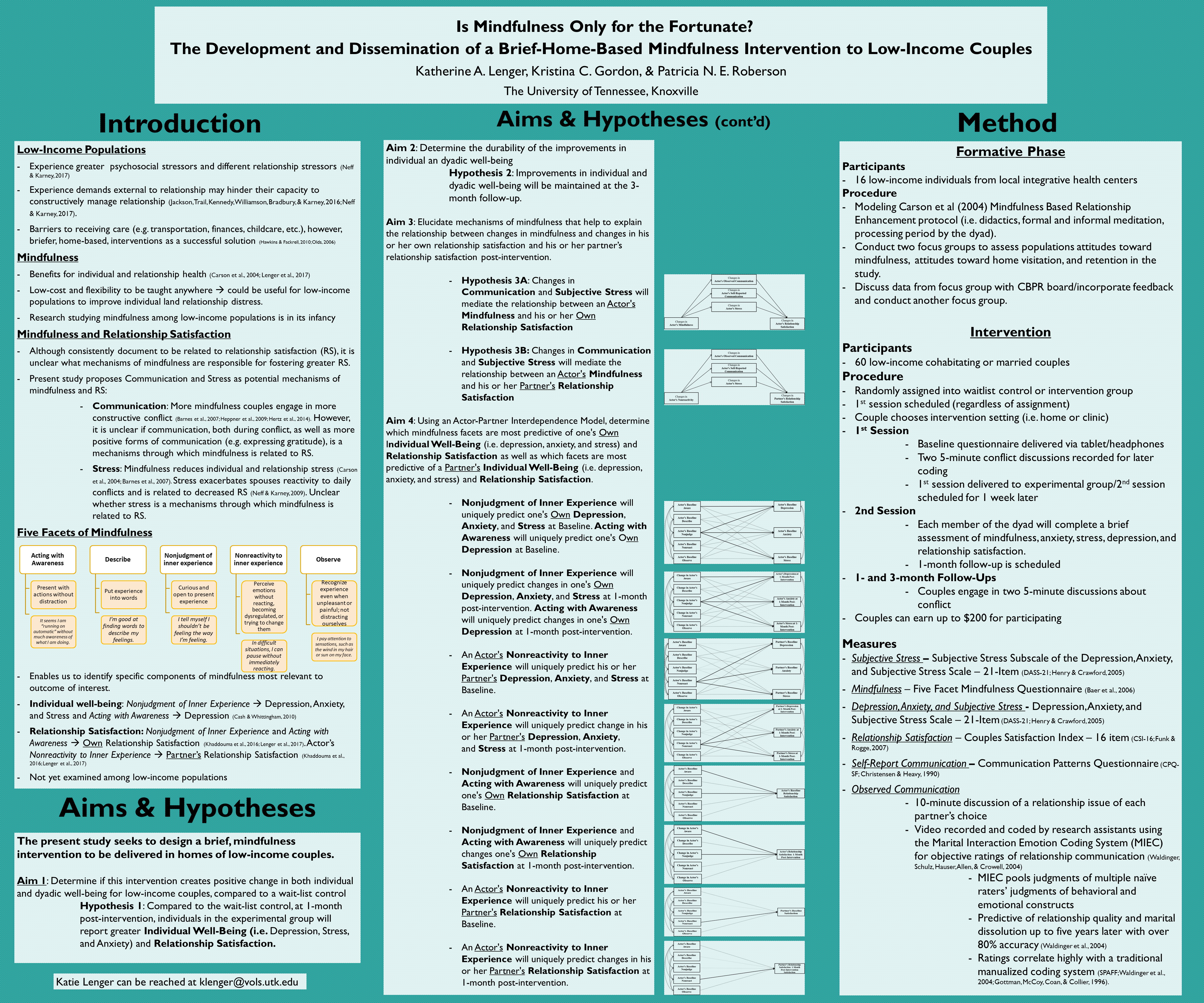Katie Lenger, Graduate Student, University of Tennessee
Low-income couples experience greater individual and relational stress compared to higher income couples. Since mindfulness reduces both individual and relationship stress, it may be particularly useful for underserved populations. Unfortunately, low-income populations experience greater barriers to engaging in typical approaches to therapy. Furthermore, many mindfulness interventions occur over an extended period causing greater attrition. In response to these barriers, briefer, home-based, interventions have been a successful solution to reaching and retaining these populations. The present study seeks to design a brief, home-based, mindfulness intervention to deliver to underserved couples. To tailor the intervention to be most palatable to low-income populations, we are conducting two focus groups, each with 4-8 low-income individuals, to discuss their attitudes on mindfulness and the intervention. Using qualitative research methods, we seek to identify common themes that emerge and will inform our intervention. These themes and implications for using mindfulness with low-income populations will be discussed.
